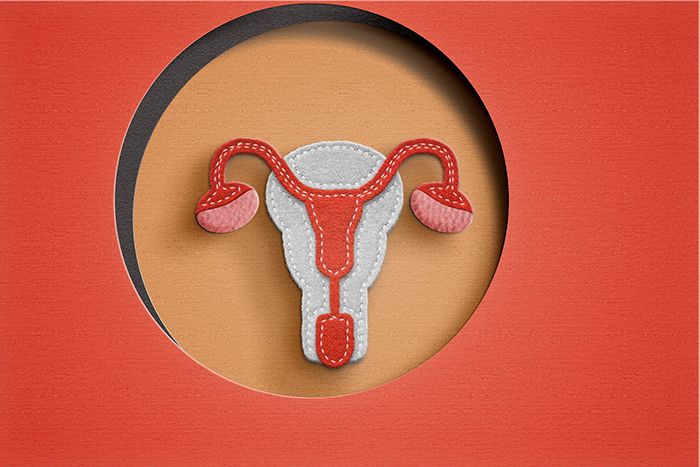When a person is experiencing a serious illness, it’s not just their body that’s affected. The entire being — from the spiritual to emotional — can be impacted. This can be particularly true for individuals navigating a cancer diagnosis and treatment. It is not uncommon for people to experience a crisis of faith, to feel disconnected from their religious community or loved ones, or to feel that it is hard to talk about the way their outlook on life may be changing. Some people may feel isolated, angry or overwhelmed. Others may have a renewed sense of meaning or faith. No matter the experience, it can be helpful for people living with cancer to connect with their own spiritual life as a way of coping with their illness.
Spiritual Health and Your Cancer Journey
What Is Spiritual Health?
Simply put, spiritual health is the quality of whole-person wellness – including spiritual and emotional wellness.
People have different ideas about what gives them meaning, their deepest values, and religious beliefs, which may affect decisions they make relating to treatment. These values can also impact decision-making about end-of-life care. Even common health issues can bring up spiritual concerns, and patients and family members may benefit from exploring the way their broader life is affected when they experience illness. Some patients and their family caregivers want doctors to talk about spiritual concerns, but feel unsure about how to bring up the subject.
Spiritual Health at Winship Cancer Institute is here to help patients connect with what they value most, to what gives them meaning in life — whether that’s a particular faith, religious or spiritual practice, meditation, cherished pastime, or loving connection to community, family, and friends.
Our Spiritual Health clinicians are available to talk to anyone and everyone, regardless of their religious identity. We provide an open, supportive, and compassionate presence. This can happen at any point of a person’s cancer journey – at the time of diagnosis, during treatment, or when returning for follow-up care. The Spiritual Health clinicians at Winship Cancer Institute will not impose any belief, but will be present to listen, understand, and help you connect with what you value.
In recent years, there have been studies to investigate the benefits of spiritual health. The results support the importance of spiritual health in giving a renewed sense of hope, self-worth, and meaning.
Cancer care designed around you and your life.
When you come to Winship for cancer care, you have a team of experts dedicated to your well- being. If you have been diagnosed with cancer or need a second opinion, we're here for you.
Make an appointmentHow Can I Attend to My Spiritual Health?
Ultimately, a person’s spirituality is a part of their own personal journey. What works best for one person may not work for another. Spiritual health clinicians can talk with you to help you find or strengthen a spiritual connection to whatever it is you believe or find of value.
For some, engaging spirituality may include prayer, attending a religious service, spending time outdoors or daily meditation. The first step is to identify what’s important to you and asking yourself questions such as “What gives me meaning?” and “What do I value most?”
These questions may be difficult to answer at first, but spending time thinking about what you value most can help you find and strengthen a path to spiritual wellness.
Ask For Help
Spiritual clinicians are also available to talk with any patient or caregiver at Winship Cancer Institute. Visit our website if you’d like to talk with someone from our spiritual health team.
To learn more, listen to the Spiritual Health podcast.
About Caroline Peacock, LCSW, MDiv
About Winship Cancer Institute of Emory University
Dedicated to discovering cures for cancer and inspiring hope, Winship Cancer Institute of Emory University is Georgia’s only National Cancer Institute-designated Comprehensive Cancer Center, a prestigious distinction given to the top tier of cancer centers nationwide for making breakthroughs against cancer. Winship is researching, developing, teaching and providing patients novel and highly effective ways to prevent, detect, diagnose, treat and survive cancer. Cancer care at Winship includes leading cancer specialists collaborating across disciplines to tailor treatment plans to each patient’s needs; innovative therapies and clinical trials; comprehensive patient and family support services; and a care experience aimed at easing the burden of cancer. Winship is Where Science Becomes Hope. For more information, visit winshipcancer.emory.edu.
Related Posts
-
 For patients with early-stage hepatocellular carcinoma (HCC) liver cancer, liver transplantation may be their best chance of survival.
For patients with early-stage hepatocellular carcinoma (HCC) liver cancer, liver transplantation may be their best chance of survival. -
 Desiree had the rare bone cancer chondrosarcoma, and she needed advanced care. Emory Healthcare delivered expert surgical care.
Desiree had the rare bone cancer chondrosarcoma, and she needed advanced care. Emory Healthcare delivered expert surgical care. -
 Cervical cancer screenings save lives. Dr. Kristen Starbuck shares five reasons why it’s time to schedule your appointment today. Read more.
Cervical cancer screenings save lives. Dr. Kristen Starbuck shares five reasons why it’s time to schedule your appointment today. Read more.
Recent Posts
-
Feb 6, 2026
-
Jan 13, 2026
-
Jan 8, 2026
-
Jan 7, 2026
-
Jan 5, 2026
-
Dec 11, 2025

